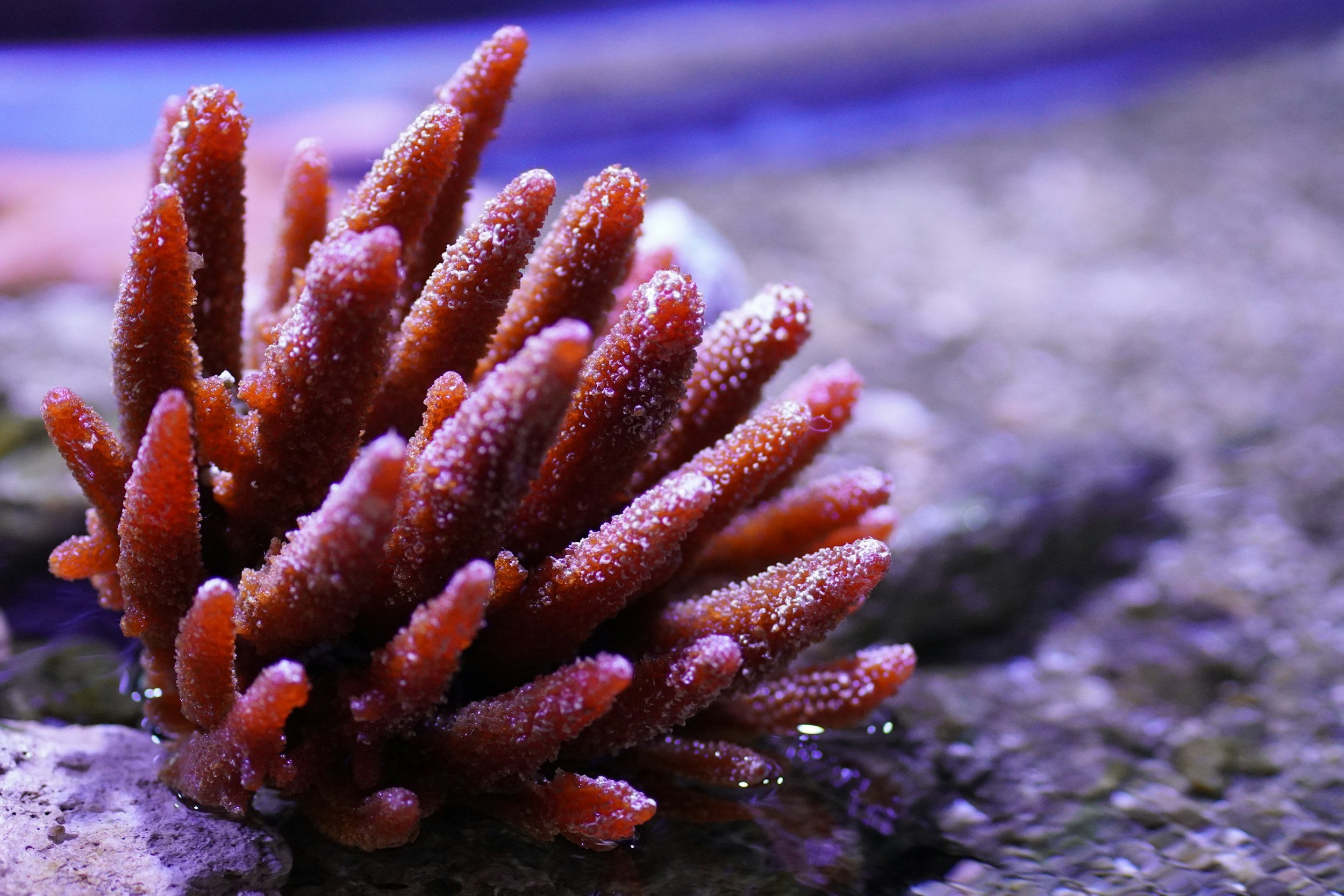
Coral Reefs
Status, Conservation, and Future Outlook of Coral Reefs in Florida
One of the most diverse and ecologically important marine ecosystems in the United States, Florida's coral reefs extend in a semi-continuous line from the Dry Tortugas to the St. Lucie Inlet-a distance of approximately 360 miles. This is the only coral reef system in the continental U.S. and is the third-largest barrier reef system in the world. These reefs support marine biodiversity, provide economic benefits through tourism and fisheries, and protect coastal communities from erosion and storm surges. Despite their importance, Florida's coral reefs face severe threats, including climate change, pollution, overfishing, and disease.
Status of Coral Reefs in Florida
Florida's coral reefs have experienced significant decline over the past few decades.
Studies estimate that 50-90% of live coral cover has been lost in certain areas, particularly in the Florida Keys, due to a combination of natural and human-induced stressors. This is further exacerbated by coral bleaching events, where corals expel their symbiotic algae due to heat stress, which have increased in frequency and intensity with rising ocean temperatures. In addition, diseases of corals, including stony coral tissue loss disease (SCTLD), have recently swept through the Florida Reef Tract, decimating many species. Despite these impacts, Florida's reefs continue to provide important ecosystem services and habitat for many marine species, including fish, sea turtles, sharks, and invertebrates. Monitoring and restoration efforts are underway, but the health of the reef system remains precarious.
Ecological and Economic Importance of Coral Reefs
Coral reefs are crucial for the marine ecosystems of Florida:
1. Biodiversity Hotspots: Their waters provide a home for over **6,000 marine species**-reef fish, crustaceans, mollusks, algae-and other marine life serving them with the necessary habitat and nursery grounds.
2. Coastal Protection: Healthy reefs serve as natural barriers to absorb wave energy, protecting shorelines from erosion, hurricanes, and storm surges.
3. Economic Value: Florida's coral reefs generate an estimated **$8.5 billion annually** through tourism, recreation, and commercial fishing. Activities such as snorkeling, scuba diving, and fishing draw in millions of visitors every year.
4. Carbon Sequestration: Coral reefs play their part in carbon cycling and the regulation of the chemistry of the ocean, which has wide ramifications for marine ecosystems around the world.
Conservation Efforts
Realizing the dire state of Florida's coral reefs, a myriad of local, state, and federal efforts have been launched for their protection and restoration:
1. Coral Reef Restoration Programs: Organizations like the Coral Restoration Foundation and the NOAA Coral Reef Conservation Program are actively working to restore coral reefs by cultivating coral fragments in nurseries and outplanting them to damaged areas. This process helps rebuild reef structure and enhance coral cover.
2. Florida Keys National Marine Sanctuary (FKNMS): Established in 1990, this park protects about 2,900 square nautical miles of coral reef habitat. It implements regulations to minimize human impact, such as restricting anchoring and fishing in sensitive areas.
3. Disease and Bleaching Response: Active research on coral diseases, including SCTLD, and treatments to reduce the spread of the disease are underway. Particular emphasis is placed on identifying species resistant to disease for selective restoration.
4. Water Quality Improvement: Programs for reducing nutrient runoff, sewage discharge, and pollution to coastal waters are very key in protecting coral reefs. This is because nutrient pollution leads to harmful algal blooms, which smother corals and disrupt reef ecosystems.
5. Climate Change Resilience: Research is in the process of identifying "super corals" that can tolerate warmer and more acidic waters. Besides that, marine protected areas and global climate initiatives are underway to minimize the impact of climate change on coral reefs.
Threats and Challenges
Florida's coral reefs face numerous interconnected threats:
1. Climate Change: Rising ocean temperatures cause coral bleaching, while ocean acidification weakens coral skeletons, reducing their ability to build reefs.
2. Disease: SCTLD has affected more than 20 coral species along the Florida Reef Tract. This disease spreads rapidly and causes high mortality rates among corals.
3. Pollution: Land-based sources of pollution, such as agricultural runoff, sewage, and coastal development, degrade water quality and stress corals.
4. Overfishing and Habitat Destruction: Overfishing disrupts reef ecosystems by removing key species responsible for maintaining ecological balance, like herbivorous fish which graze on algae.
5. Tourism Impact: While tourism is economically beneficial, activities such as unregulated diving, anchoring, and boat strikes can cause physical damage to coral reefs.
Future Outlook
The future of Florida's coral reefs relies on a mix of conservation, restoration, and global action to address climate change. While local efforts to restore damaged reefs and improve water quality are promising, larger solutions are needed to curb increasing ocean temperatures and acidification. Expanding marine protected areas, enhancing regulations, and engaging local communities in reef conservation are key components to ensuring reef resilience.
Research into the genetics, disease resistance, and novel restoration methods provides optimism for recovery of reefs. Among the novel approaches scientists are working on is the technique called "assisted evolution" in which hardier varieties resistant to future ocean conditions will be selected and distributed. Educating the public raises awareness about the human effects that contribute to the devastation of coral reefs, as shown by avoiding pollution, being a responsible tourist, and ensuring sustainable fishing practices.
Coral reefs are irreplaceable ecosystems that provide critical ecological, economic, and cultural benefits for Florida.
While these reefs are threatened by climate change, pollution, and disease, active conservation and restoration endeavors hold promise for their future.
Florida can help protect these important ecosystems for future generations by prioritizing water quality, reducing greenhouse gas emissions, and proactively restoring reefs. The survival of the reefs demands a collective effort to fight various challenges, both locally and globally, for their sustainability in resilience and contribution toward life in the sea and humanity as a whole.

